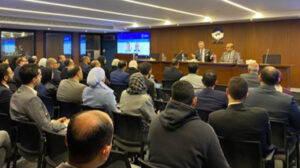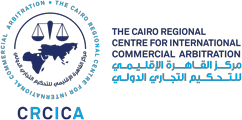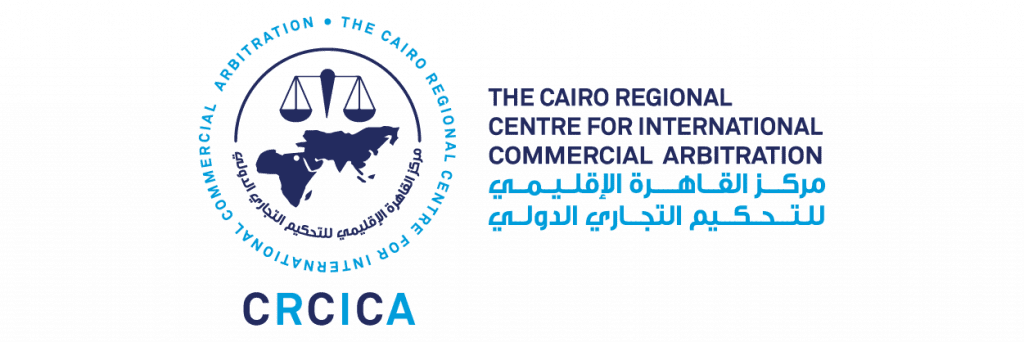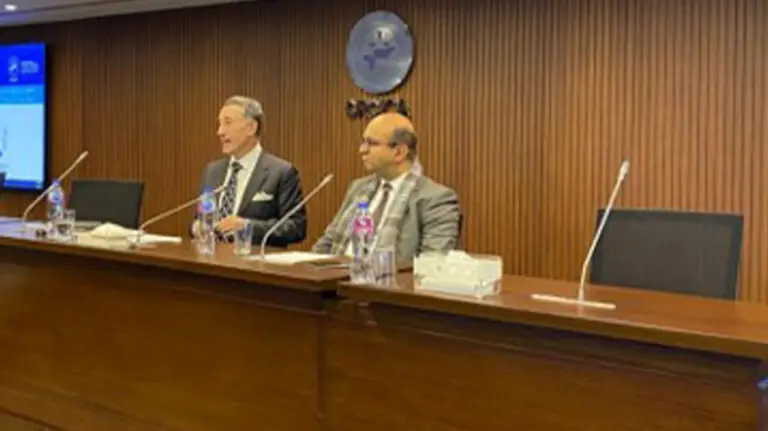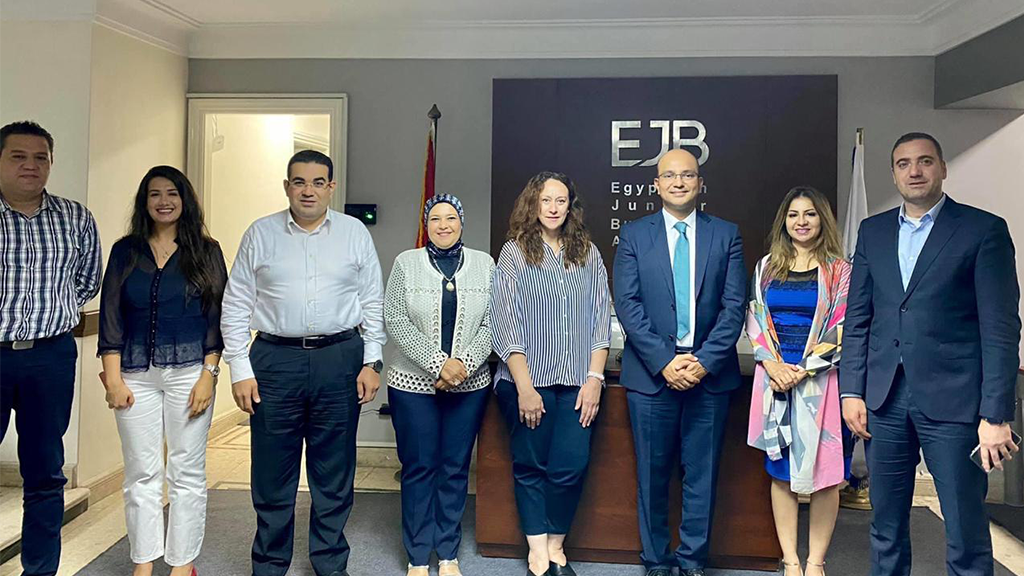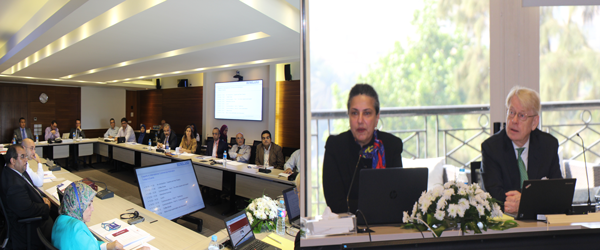The Cairo Regional Centre for International Commercial Arbitration (CRCICA) Welcomed Professor Georges Affaki for a Lecture
Cairo – 4 February 2025
In a distinguished intellectual evening, the Cairo Regional Centre for International Commercial Arbitration (CRCICA) organized an insightful seminar delivered by Prof. Georges Affaki, a prominent international arbitrator, Justice of the Qatar International Court, admitted before the French courts, and Professor at the University of Paris. With decades of extensive experience in law and arbitration, Prof. Affaki has become one of the most influential figures in the field. He is also a member of governing councils of international organisations and has served as a consultant to numerous governments and institutions on arbitration and dispute resolution matters. In addition to his practical experience, he has made significant academic and research contributions that have enriched modern arbitration principles at the international level.
The lecture, titled “The Arbitrator between the Duty of Impartiality and the Duty of Disclosure: Reflections on the Legitimacy of the Standard and the Risk of Extremism in Its Application,” provided an in-depth exploration of a timely and thought-provoking topic.
The lecture was moderated by Prof. Ismail Selim, Director of CRCICA, who provided valuable insights into the topic, highlighting CRCICA’s commitment to fostering transparent and effective arbitration practices.
The session focused on the concept of the duty of disclosure in international arbitration and the need to reconsider its established principles to ensure fairness and impartiality in the arbitration process. Prof. Affaki emphasized from the outset that disclosure is not an end in itself but rather a tool that enables the parties to make informed decisions regarding an arbitrator’s impartiality and independence.
The seminar examined recent developments that have impacted the arbitration landscape, allowing Prof. Affaki to present in-depth insights into the role of disclosure in enhancing transparency and trust in the arbitration process. Key topics discussed included the standards for the determination of challenges of arbitrators, factors that may raise doubts about their impartiality, and the extent to which excessive disclosure requirements could affect the efficiency of international arbitration.
The discussion covered the criteria used for assessing impartiality and independence, with Prof. Affaki highlighting the difference between an objective standard, adopted by the arbitral institution or a court when deciding on a challenge against an arbitrator, and a subjective standard for disclosures, which relies on the parties’ perception of whether or not there is an absence of impartiality and independence. He also addressed the impact of an arbitrator’s reputation and the importance of avoiding opportunistic challenges by parties when submitting applications for challenge.
Regarding issues that might cast doubt on an arbitrator’s impartiality, Prof. Affaki queried whether grounds for challenge should be limited to financial dependency while disregarding personal relationships or social connections that do not directly affect an arbitrator’s independence. He also discussed the need to set clear boundaries for the duty of disclosure so that it does not extend to situations covered under the “green list” of the International Bar Association (IBA) Guidelines on Conflicts of Interest in International Arbitration.
The seminar also addressed the challenges posed by excessive disclosure, particularly as some arbitration institutions, prompted by a desire to stave off potential court challenges to awards, increasingly accept challenges based on non-disclosure, even when the omitted information does not impact an arbitrator’s impartiality. Prof. Affaki warned of the risks associated with this trend, particularly in investment arbitration, which has witnessed significant developments such as the adoption of a code of conduct prohibiting dual roles for arbitrators, lawyers, and legal experts.
Potential solutions to mitigate excessive disclosure requirements were also discussed. Among them was the idea that an arbitrator should not be open to challenge for not meeting reasons that were known only to the parties when selecting that arbitrator. Additionally, the seminar proposed enhancing the concept of a “duty of cooperation” between arbitrators and parties, making disclosure a shared responsibility rather than an obligation solely imposed on the arbitrator.
On the future of arbitration, Prof. Affaki raised questions about the feasibility of utilizing artificial intelligence (AI) systems to create a comprehensive database of cases and arbitrators in international arbitration Centres, allowing for preemptive verification of disclosures while stopping short of prompting an increase in abusive challenges.
The seminar concluded with several key recommendations, with attendees agreeing on the need to distinguish between disclosure as a legal obligation and the assessment of whether such disclosure actually affects an arbitrator’s impartiality and independence. The importance of adopting an objective standard in evaluating impartiality and independence was emphasized, along with the need to avoid excessive formalities that may hinder the arbitration process due to unreasonable disclosure requirements.
At the close of the seminar, Prof. Ismail Selim asserted that arbitrators’ independence should be subject to different standards compared to judges due to the contractual nature of arbitration, but emphasized on the paramount importance of the arbitrators’ compliance with their duty to disclose.
Amid significant engagement from the attendees, the seminar concluded with extensive discussions, reaching a consensus on the necessity of striking a balance between absolute non-transparency and arbitrary disclosure, in order to reach moderate and reasonable disclosure, thereby ensuring the continued effectiveness of international arbitration as a reliable and equitable dispute resolution mechanism.
The lecture was widely praised for its insightful analysis and significant contribution to the ongoing discourse in international arbitration.
